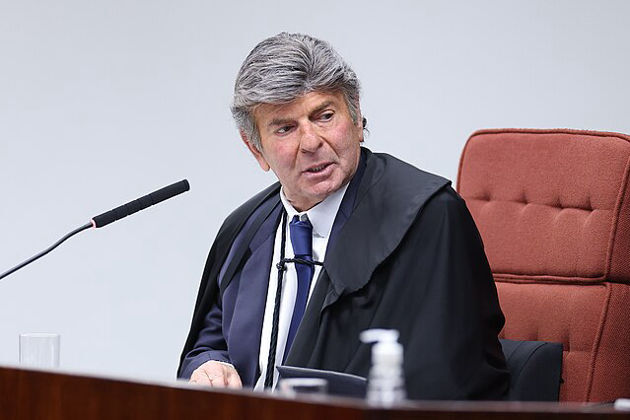Move FM Global News

Bolsonaro land conviction and 27-year jail sentence
Sep 14, 2025BRASILIA, Brazil: In a landmark decision, Brazil’s Supreme Court has convicted former President Jair Bolsonaro on September 11, 2025, sentencing him to 27 years and three months in prison for his role in an attempted coup after losing the 2022 election to Luiz Inácio Lula da Silva.
Four of the five justices on a special panel found him guilty on five charges: conspiracy to stage a coup, membership in an armed criminal organization, attempted violent abolition of democratic rule, violent damage to state property, and deterioration of heritage property.
Despite the strong majority, Justice Luiz Fux dissented — the same judge who, earlier in the trial, had voted to acquit Bolsonaro on all counts.
Fux’s Dissenting Opinion: Key Arguments
In his dissent, Fux argued:
-
The evidence presented by prosecutors did not prove a coordinated plan sufficient to amount to a coup. He emphasized that mere intention (“cogitation”) is not enough.
-
He raised doubts about whether the Supreme Court had proper jurisdiction to try the case, since Bolsonaro was no longer in office.
-
He also questioned whether the defense had been given adequate time, and suggested procedural problems in including some of the co-defendants.
Co‑Defendants and Sentences
Besides Bolsonaro, several of his associates were also convicted and received significant sentences.
Some of the others sentenced include:
-
Mauro Cid (former aide‑de‑camp): 2 years (in a more open regime)
-
Walter Braga Netto (former chief of staff / Defence Minister): ~26 years
-
Other military and government officials also received sentences ranging from about 16 to 26 years, depending on their role.
Political and Legal Fallout
-
Bolsonaro remains under house arrest and has denied the charges. He has declared plans to appeal the decision.
-
He is now disqualified from holding elected office until 2030 under prior rulings — the new sentence further cements challenges for any return to power.
-
The case is being seen by many as a turning point in Brazil’s democracy: it marks the first time a former Brazilian president has been convicted for attempting to overturn democratic governance.
Why the Case Matters
This decision carries huge symbolic and practical weight:
-
It sets a precedent for accountability at the highest levels of government.
-
It may reshape political alignments and force Bolsonaro’s movement to find a successor.
-
It adds fuel to already intense polarization in Brazil.
-
Despite the conviction, his influence remains; many right‑wing supporters see the trial as politically motivated


